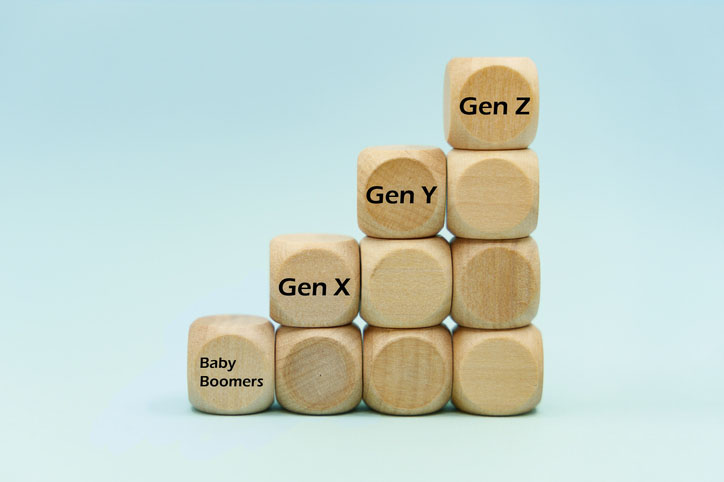 Tanaonte/Getty Images
Tanaonte/Getty Images From today’s perspective, the past seems oh so simple. If you wanted to select a password for your computer that you might actually remember, all you had to do was use the word “incorrect.” That way if you messed it up, you would immediately receive a message reminding you that “Your password is incorrect.”
Now you need to write down at least a dozen characters, complete with an upper-case and a lower-case letter, some numbers, and a symbol or two. And if that isn’t challenging enough, you better have your phone nearby for multi-factor authentication.
These are undoubtedly complicated and trying times, and it is human nature to think of the past with a certain amount of nostalgia. And even if you don’t, members of the younger generation are eager to tell us how easy we had it compared to them.
I remember feeling that way when I was growing up. Life had a predictability for my parents and grandparents that it never had for me. For the most part, they spent their lives within a few miles of where they were living when they were barely out of their teenage years. And they worked in the same jobs their entire careers. For me, it was move after move, pinballing from coast to coast, and employer after employer. On top of that, I thought I had it so tough being raised in the shadow of the Cuban Missile Crisis while in elementary school, and the Vietnam war while in high school and college.
Woe is me …
My father watched friends die while fighting at their side during World War II. But my parents and grandparents never complained about their lives. They left the complaining to me.
It was only later that I realized how easy my life was compared with those who came before me. One grandfather migrated to the U.S. from what is currently Poland, all alone at the ripe old age of 20; the other suffered the agony of living in a family beset by mental illness. My father watched friends die while fighting at their side during World War II. But my parents and grandparents never complained about their lives. They left the complaining to me.
And now it’s payback time. My three kids are certain it was a cakewalk growing up in the analog age, though I’m not so sure they get what it was like typing on those early word processors (much less on manual typewriters), using land lines, and threading paper into fax machines and printers. Were dinosaurs still roaming the earth when we relied on the Yellow Pages to figure out where to shop, the Thomas Guide to get across town, and AAA TripTiks to get across the country? One of my daughters once came home from third grade and asked me if there was paper when I was her age. I told her “No, we just wrote on the walls of our caves.” I’m pretty sure she believed me. While today’s technology has certainly improved our lives in many ways, I’m nostalgic for the day when you didn’t need an engineering degree from MIT to turn on your TV.
The attitude that earlier generations had it easy presumably went way back, perhaps even to the biblical era. I wonder if Jacob used to complain that while all Grandpa Abe had to worry about was how he could get his son to the top of some mountain in the land of Moriah, he had to grapple with how he would reconcile with his estranged brother Esau. Or if Joseph, dealing with all the pressure associated with his position as Chief Operating Officer of the Land of Egypt, envied his saba Isaac, whose greatest challenge was figuring out which son was which.
As I stare into the eyes of my six-month-old granddaughter, I imagine that before very long she will think that she is growing up during the most difficult moment in human history, with climate change affecting our everyday lives, AI changing the workplace in unknown ways, and even more troubling, war and antisemitism wreaking havoc on everything we hold dear.
How easy, she’ll think, Grandpa Moshe had it. All he had to worry about is what the topic of his next column would be.
You know what? She may have a point.
Morton Schapiro is the former president of Williams College and Northwestern University. His most recent book (with Gary Saul Morson) is “Minds Wide Shut: How the New Fundamentalisms Divide Us.”























 More news and opinions than at a Shabbat dinner, right in your inbox.
More news and opinions than at a Shabbat dinner, right in your inbox.